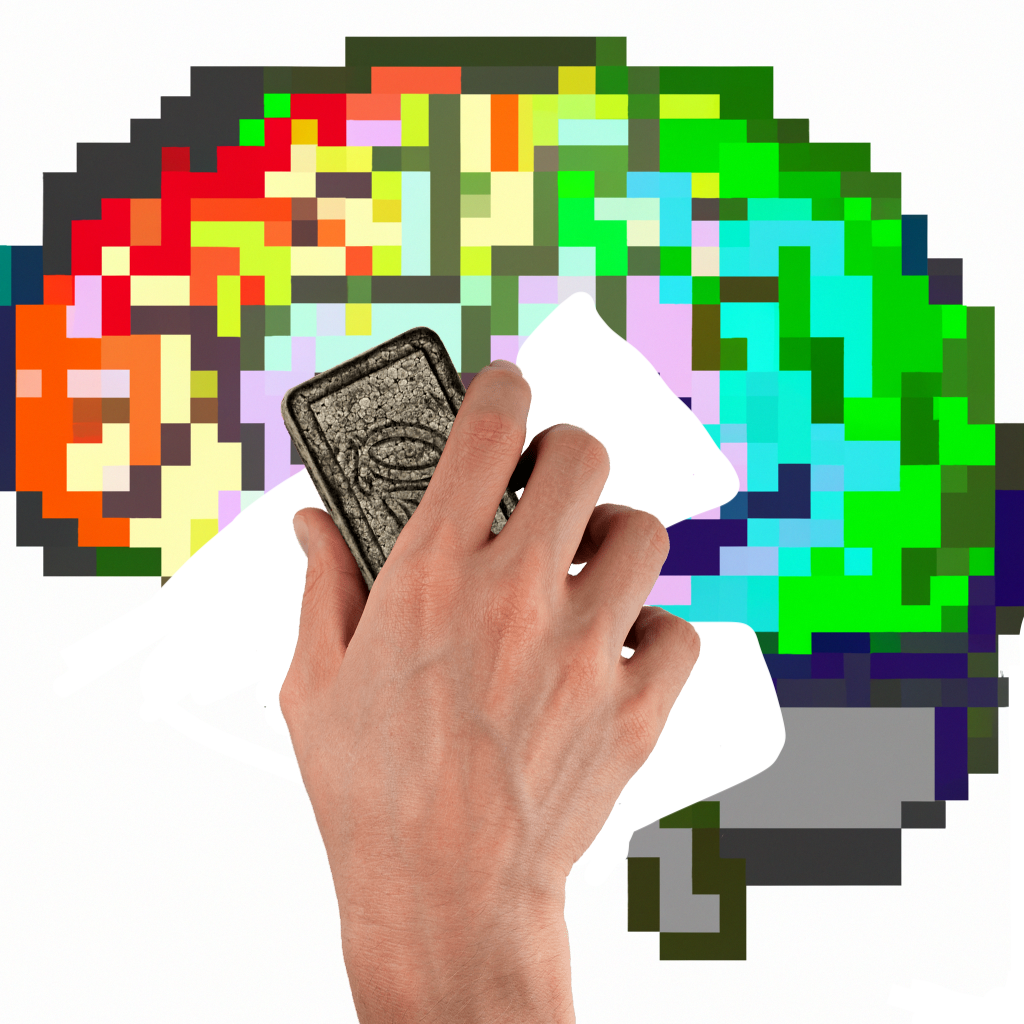
Image credits: Dall-E and toppng.com
Why?
Deep neural networks are at the center of rapid progress in AI, with applications to computer vision, natural language processing, speech recognition and others. While this progress offers many exciting opportunities, it also introduces new challenges, as we researchers bear the responsibility to understand and mitigate the potential risks associated with it. Notably, a key ingredient of recent advances is the role of massive datasets combined with ever larger models. This aspect has implications for privacy, as large models tend to memorize details of their training set. Concretely, the field faces a significant challenge meeting recent privacy regulations, such as EU’s General Data Protection Regulation (Mantelero, 2013) or Canada’s Personal Information Protection and Electronic Documents Act, which stipulate that individuals have the “right to be forgotten”.
The introduction of this legal notion has spurred the development of formal, mathematical notions of “deleting” or “obliterating” one’s data, all studied under the auspices of “machine unlearning”. Informally, unlearning refers to removing the influence of a subset of the training set from the weights of a trained model. The development of novel formal models, their theoretical limitations, and efficient and scalable algorithms is a rich and growing subfield; see for example recent surveys by Zhang et al. (2023), Nguyen et al. (2022), Jiang et al. (2022), as well as the Google AI blogpost on this challenge.
Machine unlearning is a powerful tool that has the potential to address a number of important problems. As research in this area continues, we can expect to see new methods that are more efficient, effective, and ethical.
Machine Unlearning Competition
The goal of the competition is twofold. First, by unifying and standardizing the evaluation metrics for unlearning, we hope to identify the strengths and weaknesses of different algorithms through apples-to-apples comparisons. Second, by opening this competition to everyone, we hope to foster novel solutions and shed light on open challenges and opportunities.
The competition has been hosted on Kaggle and run between mid-August 2023 and mid-November 2023. The competition is not yet open for participants. If you would like to be notified by email when it opens, consider subscribing to the competition mailing list
Task and Data
The challenge centers on the scenario in which an age predictor is built from face image data and, after training, a certain number of images must be forgotten to protect the privacy or rights of the individuals concerned.
Anatomy of unlearning. An unlearning algorithm takes as input a pre-trained model and one or more samples from the train set to unlearn (the "forget set"). From the model, forget set, and retain set, the unlearning algorithm produces an updated model. An ideal unlearning algorithm produces a model that is indistinguishable from the model trained without the forget set.
The starting kit provides an example of unlearning algorithms for participants to build their unlearning models upon. We’ve also provided a document describing how submissions are evaluated. See the Kaggle site for more information on the submission and the current leaderboard.
For the Feedback and Final phases of the challenge, participants’ submitted code is evaluated on real face datasets hosted on Kaggle. Those datasets are not made available to participants during the challenge.
Update May 2024. The evaluation metric used for the competition is now open sourced. See its github repo for more details.
Useful links
- Report of competition findings and analyses
- Kaggle site
- starting kit
- Code of evaluation metric
- Contact: google group unlearning-challenge.
Timeline
Check phase: Begins June 28, 2023. Initial announcement and availability of the “starting kit”, containing a notebook with an example simple unlearning algorithm and a simple metric for evaluation, so that participants can start practicing.
Feedback phase: September 11, 2023 - November 27, 2023. Submission site opens and participants can start making submissions on Kaggle.
Final phase: Starting November 27, 2023. During this phase, the organizers can run additional analyses on the submitted unlearning algorithms, including different metrics and datasets.
Winners will be announced in the beginning of December.
Contact
Announcements about the competition will be made on this website
Posts
subscribe via RSS
